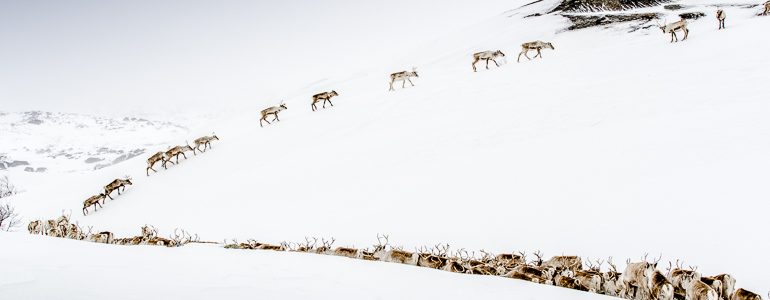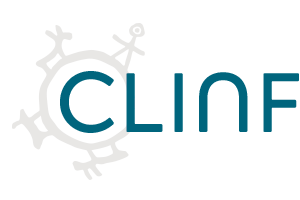
From Nuuk to Yakutsk!
The following information is also available in eight Nordic languages.
CLINF overall objectives:
To identify and investigate the effects of climate change on the geographic distribution and epidemiology of human and animal infectious diseases throughout the Nordic region and Russia. Particularly, CLINF studies such climate change effects on northern animal husbandry households in the light of socio-economic and managerial conditions.
To turn new understanding regarding climate change effects on the geographic distribution and epidemiology of climate sensitive infections into practical tools for decision-makers responsible for the development of northern societies, both by providing relevant data in an accessible form, and by developing an early warning system for climate sensitive infections at the local level.
Project summary:
Climate change is first and foremost felt in northern regions, where the rate and magnitude of change are greater than elsewhere. Ecological alterations resulting from climate change are likely to push the geographic boundaries of climate sensitive infections (CSI) northwards, thereby increasing the potential for inhabitant humans and animals to be exposed to new and/or existing CSI. Most CSI are zoonoses, i.e. transmitted both ways between animals and humans. CSI may be carried by vectors and reservoir organisms such as ticks, badgers or roe deer, which are expanding their ranges northwards.
This is a serious concern for many northern societies depending on animal husbandry, such as sheep and reindeer herding, or on other activities such as hunting, fishing and tourism. In the far North, such extensive activities tend to play an important role in livelihoods, culture, identity, art, and views of the world. Therefore, many northern societies will have to deal with complex consequences of increased exposure to CSI, adding to the direct challenges related to health and economy. Hence, the societal consequences of climate change exacerbate the direct CSI effects on human and animal health, which generates a dynamically interlinked scenario of societal, economic, political, and cultural change. CLINF addresses these dynamically interlinked challenges, and aims at contributing with valuable knowledge for the development of adaptive capacity, essential to ensure socio-economic development and viable communities in the changing North. CLINF addresses the northern CSI scenario through a combined analysis of health statistics, potential landscape change and the associated CSI migration, perceptions of risk and societal cost, adaptive capacity to cope with risks and costs, and with strengthening societal CSI infrastructures. Adaptive capacity, gender effects, and traditional knowledge are used as integrating factors.
The potential CSI effects of climate change are dynamic and complex. The CLINF consortium therefore engages a multi-disciplinary team, with broad collaboration across science disciplines and societal stakeholders. CLINF rests on existing scientific and stakeholder infrastructures where, as an example, the existing network of northern environmental monitoring stations is utilised to implement an early warning system for emerging infections at the local level (see EU-project INTERACT). In addition, CLINF enhances the performance of regional Earth-process- models regarding environmental climate change effects, develops methodologies for adequate assessment of societal risk and adaptive capacity, and produces new map and data products depicting the current and projected geographic spread of emergent CSI (see the CLINF GIS Public Data Repository). The results are accessible to scientists, stakeholders and the public in accordance with OPEN principles, and are disseminated in lay terms.
- 4 page summary as pdf or online
- Illustrated project presentation (pdf)
- Read more on the project outline
The CLINF Nordic Centre of Excellence is funded by the NordForsk Arctic Programme Responsible Development of the Arctic, Opportunities and Challenges – Pathways to Action for the period of April 2016 – March 2021.
